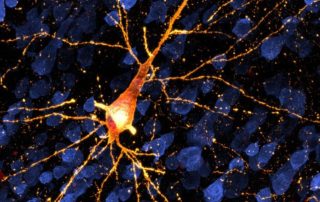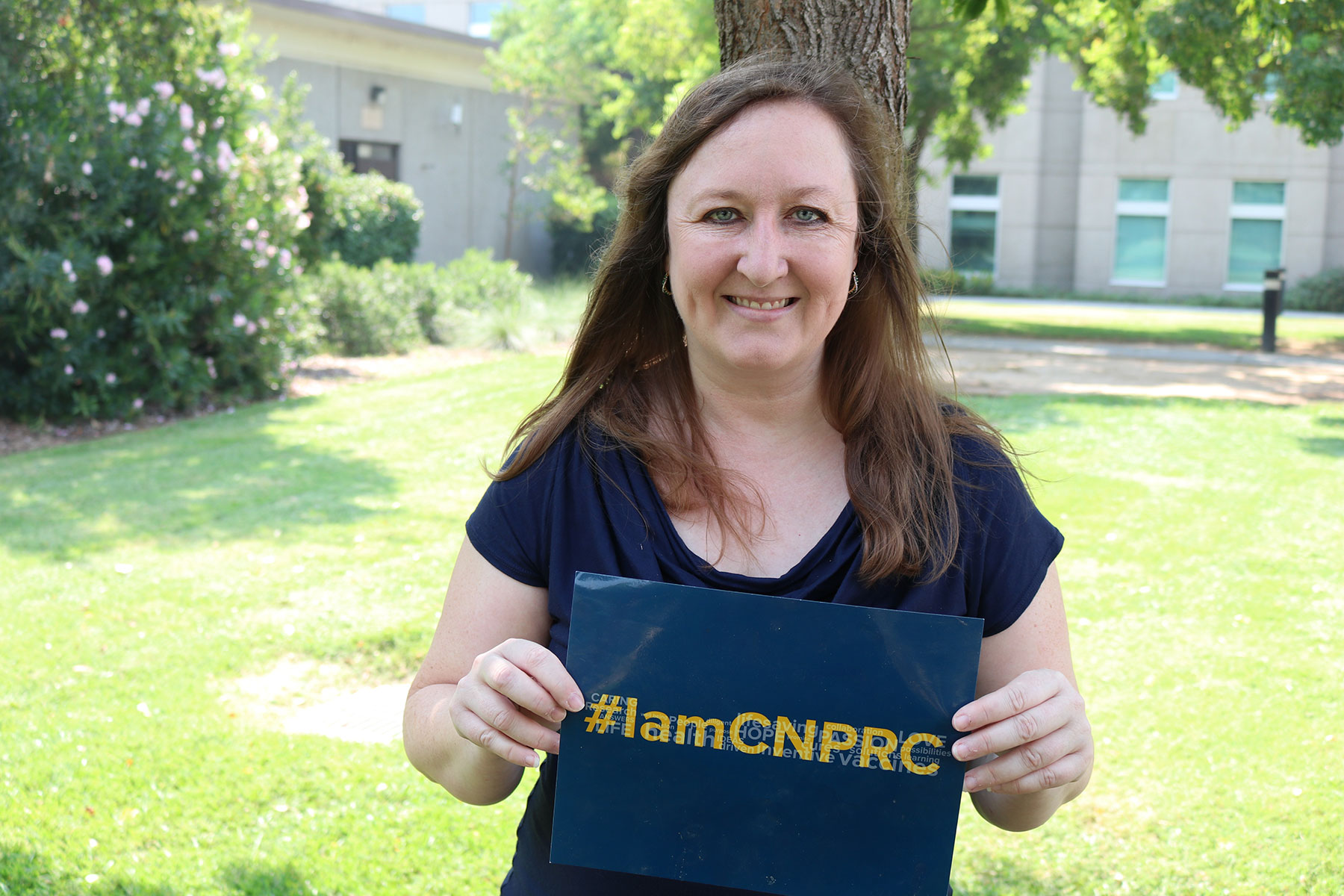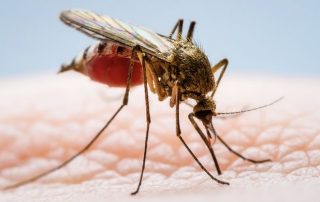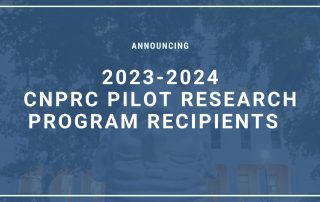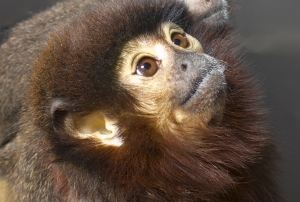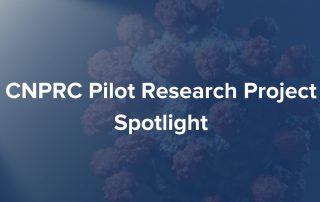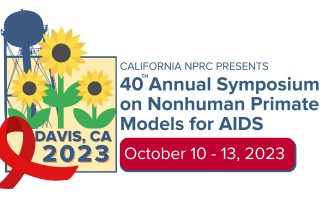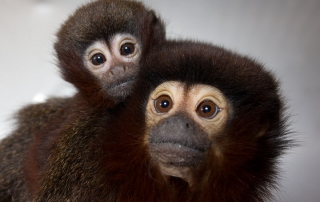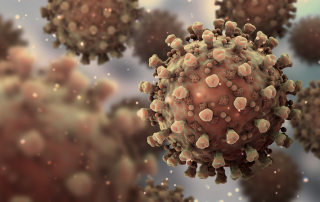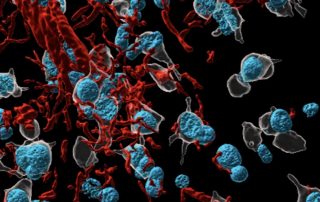Karen Bales steps in as interim director of California National Primate Research Center
California National Primate Center (CNPRC) announced Professor Karen Bales as interim director, marking the first time a woman has held this position in the center’s history. The previous director, Professor John Morrison, has stepped down after an eight-year tenure to assume the role of president-elect of [...]
Novel Vaccine is a Promising Treatment for Opioid Use Disorder
A new vaccine designed to protect against oxycodone has demonstrated the ability to generate antibodies in the blood, preventing the drug from reaching the brain by trapping it in the bloodstream. The study, funded by the California National Primate Research Center’s Pilot Research Program at the University of [...]
Aged and unfazed: Older monkeys exhibit blunted nervous system response to arousing stimuli
Aged and unfazed: Older monkeys exhibit blunted nervous system response to arousing stimuli Aged rhesus macaques appear unfazed, at least when it comes to their autonomic nervous system (ANS), compared to their younger counterparts. In an experiment monitoring peripheral nervous system responses to mood-inducing videos, researchers [...]
Zika Infection in Pregnant Macaques Slows Fetal Growth
Zika virus infection in pregnant rhesus macaques slows fetal growth and affects how infants and mothers interact in the first month of life, according to a new study from researchers at the California National Primate Research Center at the University of California, Davis. The work, published Oct. 25 [...]
Lower Urinary Tract Dysfunction is Linked to Metabolic Syndrome
Lower urinary tract (LUT) dysfunction is prevalent in older adults. Clinical manifestations include urinary retention, incontinence and recurrent urinary tract infections. Bladder catheters and increased risk for infections requiring outpatient antibiotic treatment or hospitalization frequently result. This is often followed by the loss of independence and the need for [...]
CNPRC Pilot Research Program Recipients 2023-2024
The California National Primate Research Center is pleased to announce the 2023-2024 CNPRC Pilot Research Program recipients. Every year the CNPRC awards pilot research grants focusing on nonhuman primate (NHP) models of human disease. This award aims to explore innovative areas of NHP research and generate preliminary data to [...]
Monkey Speed-Dating: The Power of First Impressions
Image of Coppery Titi Monkey. Photo by Kathy West. Monkey Speed-Dating: The Power of First Impressions Just how important are first impressions? Using a speed-dating model, student researcher Alexander Baxter, explored the significance of first impressions in humans and nonhuman primates. The work published in [...]
CNPRC Pilot Research Project Spotlight: The Impact of Age on COVID Response
CNPRC Pilot Research Project Spotlight: The Impact of Age on COVID Response In the spring of 2020, SARS-CoV-2 swept across the world, and scientists everywhere immediately jumped into action. Questions from how the virus spread, to what the infection does to the human body, to who [...]
UC Davis Researchers Awarded $3.5 Million to Study Disease Causing Vision Loss in Children
UC Davis Researchers Awarded $3.5 Million to Study Disease Causing Vision Loss in Children Autosomal dominant optic atrophy (ADOA) is a rare genetic disease that causes progressive and irreversible vision loss in both eyes starting in the first decade of life. There is currently no treatment [...]
40th Annual Symposium on Nonhuman Primate Models for AIDS
The 40th Annual Symposium on Nonhuman Primate Models for AIDS will take place on October 10-13, 2023, at University of California Davis Activities and Recreation Center in Davis, California. Registration is now open! The 40th annual Symposium will be a unique, world-class [...]
Male and Female Titi Monkeys Exhibit Different Biological and Behavioral Responses to Intranasal Oxytocin
Biological and Behavioral Responses to Intranasal Oxytocin A series of studies published by Dr. Karen Bales’ lab at the California National Primate Research Center revealed that chronic intranasal oxytocin (OT) produces sex-specific biological and behavioral responses in titi monkeys, a monogamous nonhuman primate. Karen Bales [...]
Experimental COVID-19 Vaccine Offers Long-Term Protection Against Severe Disease
Experimental COVID-19 Vaccine Offers Long-Term Protection Against Severe Disease Two-dose vaccines provide protection against lung disease in rhesus macaques one year after they were vaccinated as infants, a new study shows. The work, published in Science Translational Medicine Dec. 1, is a follow-up to a 2021 [...]
COVID-19 Virus Infects Neurons, Induces Inflammation in the Brain
Presence of SARS-CoV-2 in the brain induces neuroinflammation and disruption of the olfactory cortex in rhesus macaques (Danielle Beckman, CNPRC) COVID-19 Virus Infects Neurons, Induces Inflammation in the Brain by Logan Savidge SARS-CoV-2, the COVID-19 virus, caused significant neuron damage and inflammation within [...]
Antibiotic Exposure During Infancy Remodels Immune Response to Respiratory Pathogens
Antibiotic Exposure During Infancy Remodels Immune Response to Respiratory Pathogens Infants are commonly exposed to and treated with antibiotics during the birthing process. However, new research in nonhuman primates may change the way doctors approach antibiotic treatment. A study conducted by the Cincinnati Children’s Hospital Medical Center (CCHMC) [...]
Wildfire Smoke Exposure in Early Pregnancy Affects Infant Monkey Behavior
Wildfire Smoke Exposure in Early Pregnancy Affects Infant Monkey Behavior by Andy Fell Infant monkeys conceived while their mothers were naturally exposed to wildfire smoke show behavioral changes compared to animals conceived days later, according to a new study from researchers at the California [...]
Can early life exposure to wildfire smoke alter our genes?
Can Early Life Exposure to Wildfire Smoke Alter Our Genes? Early life wildfire smoke exposure led to long-term changes in genes impacting nervous and immune systems in rhesus macaques, according to research from the California National Primate Research Center (CNPRC) at the University of California, Davis. [...]
‘Life of a Neuron’: A Collaboration Between Scientists and Artists
‘Life of a Neuron’: A Collaboration Between Scientists and Artists UC Davis Faculty Participating in D.C. Exhibition by Logan Savidge We tend to dichotomize the rational approach of scientific methodology and the creativity of artistic expression. However, the two are much more overlapping than we give [...]
Antibody Treatment Prevents Inflammation in Lungs, Nervous System in Macaques With SARS-CoV-2
Antibody Treatment Prevents Inflammation in Lungs, Nervous System in Macaques With SARS-CoV-2 by Andy Fell Monoclonal antibodies protected aged, diabetic rhesus macaque monkeys from disease due to SARS-CoV-2 and reduced signs of inflammation, including in cerebrospinal fluid, according to a new study from researchers at the University [...]
COVID-19 In the lab: A conversation with an infectious disease researcher during an active pandemic
SARS-CoV-2, the virus responsible for the disease referred to as COVID-19, has swept across the world infecting millions of humans and tragically killing a significant proportion of those infected. COVID-19 has grown from an outbreak to an epidemic and finally a worldwide pandemic at a historic rate. To [...]

